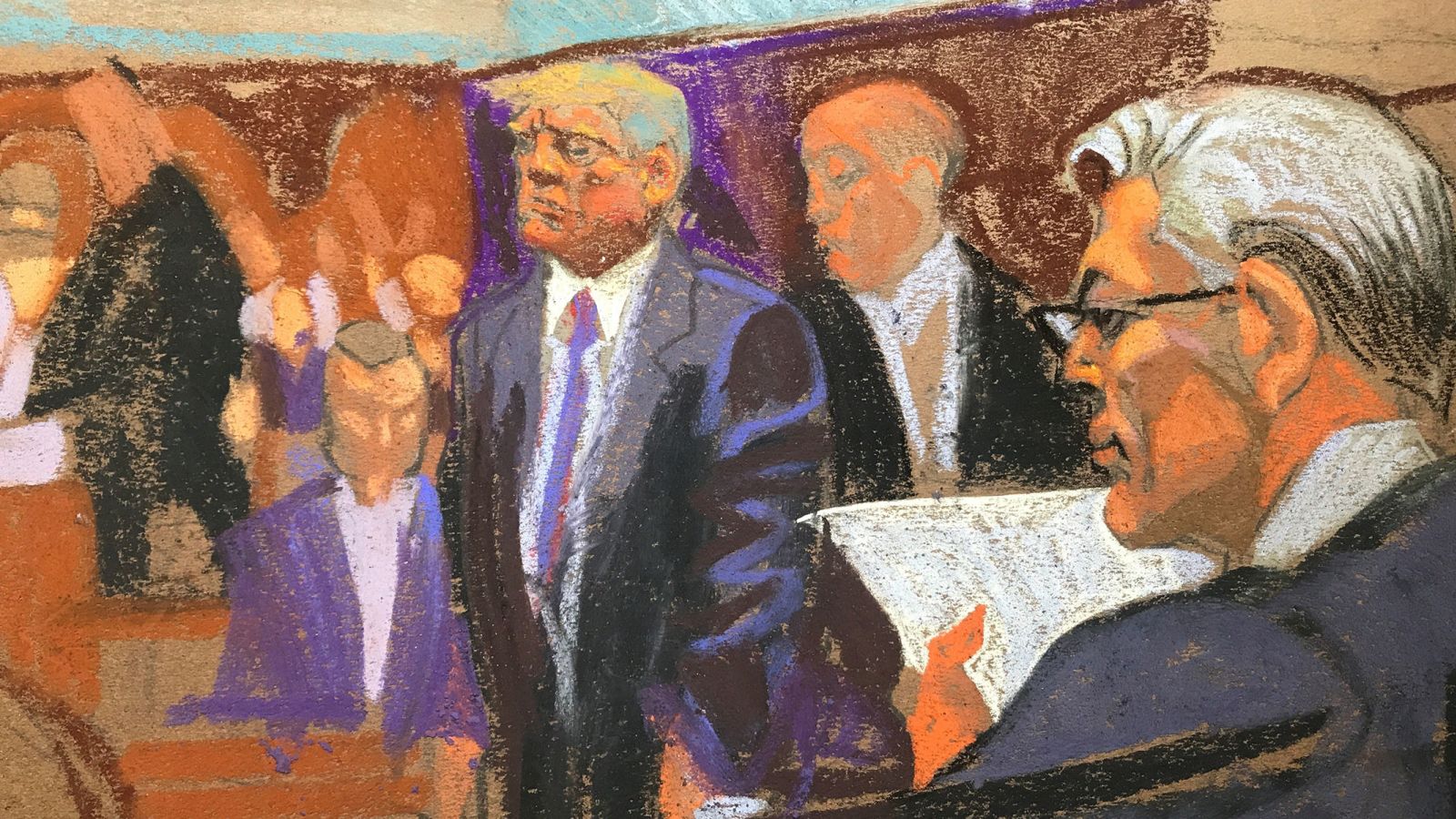In an unprecedented outcome in American history, former President Donald Trump has been convicted by a New York jury on all 34 counts related to hush money payments made during the 2016 presidential campaign. The conviction has ignited an intense debate over the implications for U.S. democratic institutions as online forums linked to extremism have erupted in threats aimed at the jurors.
Following the verdict's announcement, the digital space witnessed a surge in violent rhetoric, reminiscent of the online turmoil seen after the FBI’s search of Trump’s Mar-a-Lago property in August 2022. Experts have highlighted that the volume of such rhetoric is alarmingly high, with threats being made against jurors, the presiding judge, district attorney, and even journalists covering the case. This situation has drawn parallel concerns of potential real-life security risks, including 'swatting' and 'doxxing' incidents.
Trump's advisors had anticipated a guilty verdict and had initially attempted to mitigate political fallouts by casting aspersions on the judicial process. Supporters and allies have continuously questioned the fairness of the trial, branding it a politically motivated attack aimed at derailing Trump's political career. Such remarks have exacerbated tensions and affected public perceptions of the justice system.
The trial signifies that no one, not even a former president, is above the law, which has reaffirmed the functional integrity of the democratic process according to analysts. Yet, the relentless attacks from Trump and his allies have inflicted severe blows on public trust in judicial institutions. Since late 2020, threats against federal judges in the USA have significantly increased.
Among the masses, opinions remain divided. While some believe the legal proceedings to be just, others, particularly Trump's supporters, perceive it as a political witch hunt aimed at disempowering him. Polls suggest that despite the conviction, public opinion remains largely unchanged, with many Americans' voting decisions for the upcoming election appearing unaffected by the court's ruling.
Throughout the trial, which attracted significant media coverage and heightened security measures, Trump maintained his innocence, arguing that the payments and subsequent documentation were ordinary legal reimbursements. However, prosecutors successfully argued that the payments were meant to mislead and influence the election, constituting illegal campaign financing.
The case has not only tested the resilience of democratic institutions but also highlighted the volatility induced by extreme polarization. Scholars and political scientists have expressed concern over the potential radicalization of segments of the population, which might weaken the longstanding democratic framework.
Moving forward, Trump's ability to appeal the verdict remains, and his eligibility to run in the forthcoming presidential election retains its standing regardless of the conviction. As analysts continue to dissect the trial's impact, the broader consequences for American democracy and rule of law continue to unfold.
- The extremism watchdog Institute for Strategic Dialogue (ISD) reported that there were approximately 9,300 posts about civil unrest within a day of Trump's conviction. For comparison, there were about 9,900 posts related to riots following the Mar-a-Lago search in 2022.
- Experts worry that extremist and anti-government rhetoric online might be further amplified by foreign intelligence services and terrorist groups, potentially inciting more violent actions in the lead-up to the November elections.
- This marks the first criminal conviction of an American president, a historic event that opens numerous discussions about its implications not only for Trump but also for future presidential conduct and legal precedents.






